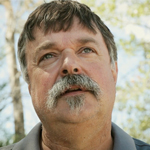Tribal Trainings
Each year, in partnership with The Whitener Group, the FbD backbone offers a 3-part Tribal Training Series for 30 – 35 non-tribal floodplain managers, practitioners and scientists (i.e. state, county, federal, non-profit and non-tribal member tribal staff) who are interested in gaining a deeper understanding of the multi-dimensionalities of Tribal Nations in Washington State. Space is limited due to the sensitivity of the subject matter and to create a safe space for participants to ask open questions and make mistakes. Join the FbD Newsletter to be notified of the next opportunity to register..
Floodplains for Whom?
Research – Tribal Perspectives in Floodplain Management, Olivia Zimmerman,
This Story Map is meant to accompany the research paper, “Addressing inequities and meeting needs of Indigenous communities in floodplain management” by Olivia Zimmerman and Tanya Eison, with support from Robert Carey and Phillip S. Levin. It provides historical context and additional resources, which highlight that iterative pluralistic, collaborative, and adaptive management co-created with Tribes can support just environmental governance that is rooted in Tribal priorities.
Training Resources
Tribal Panels
The September 2023 FbD Convening featured a unique panel discussion with Tribal leaders from across Washington state. In this discussion, speakers share about the challenges of engaging in disaster planning systems that are out of alignment with tribal values and perspectives, challenges with permitting at the federal, state and local levels and more.
To watch the second half of this panel discussion, click here.
Self Guided Training: Welcome to Indian Country 101 + 102
Important Links
- Addressing inequities and meeting needs of Indigenous communities in floodplain management
- FbD Tribal Panel June 2022
- Indian Country 101(a): Crash Course in Native History in the U.S
- Indian Country 101 (b): Tribal Governments Today
- Indian Country 101 (c): Identity, Citizenship & Culture
- Indian Country 102 (a): Let’s Hit the Treaty Trail!
- Indian Country 102 (b): WA Tribes Today
- Indian Country 102 (c): Time to Talk Fish, Baby!
